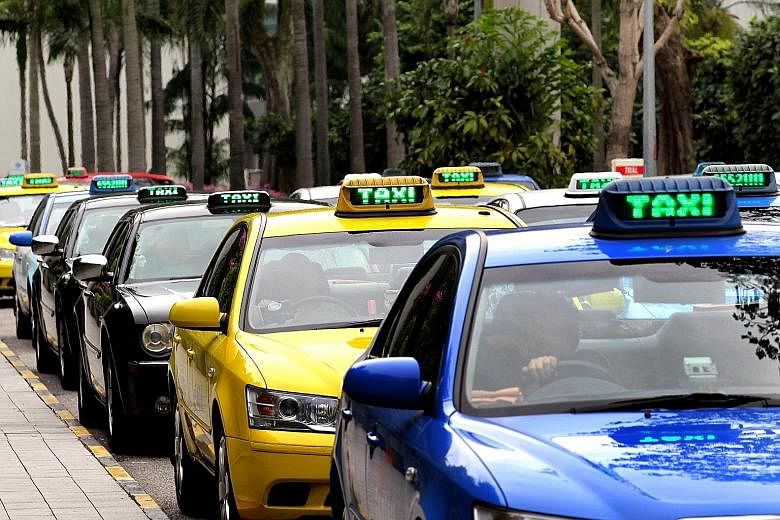Fare cheats remain a perennial problem for taxi drivers, but taxi firms and transport bodies are doing more to try to arrest the problem.
More taxi drivers have stepped forward to report fare evasion cases in recent years, thanks to efforts by taxi companies and the National Taxi Association (NTA) to educate them about reporting procedures.
The Public Transport Council (PTC) and the Land Transport Authority (LTA) also worked together with taxi operators and the NTA to encourage cabbies to report such cases, so as to deter fare cheats.
There were 240 reported fare evasion cases last year, up from 125 in 2014 and 80 in 2013.
The authorities have also introduced tougher penalties to deal with the problem - fines for taxi fare cheats were doubled last Monday to $200 and $400 for first- and second-time offenders respectively, on top of unpaid fares.
-
240 - Number of reported fare evasion cases in 2015
125 - Number of reported fare evasion cases in 2014
80 - Number of reported fare evasion cases in 2013
Those who do not pay or who are caught a third or subsequent time can be hauled to court. Under the Public Transport Council Act, passengers found guilty of fare evasion can be fined up to $1,000, while repeat offenders can be fined $2,000 and jailed up to six months.
Mr Ang Hin Kee, executive adviser to the NTA, said many cases go unreported as cabbies would have to inform their companies, the police and the PTC to get payment from errant passengers.
"They would prefer if the process can be shortened," said Mr Ang, who is also MP for Ang Mo Kio GRC.
Agreeing, Mr Haniff Mahbob, 64, a cab driver of 30 years, said: "Many drivers forego reporting fare evasion cases due to the loss of driving time."
Mr David Chua, 53, said he had encountered more than 10 cheating cases in his 10 years as a taxi driver, and lost almost $300 in fares. He reported one case, but not subsequent ones because of the hassle in having to deal with the police, his company and the LTA to get his fare back.
Part-time cabby Sawaraj Haridas, 72, has also encountered such cheats. A passenger he drove from Joo Koon to Pasir Ris told him to wait for him to get money for his $40 fare from his flat, but never returned.
He did not report the case as he found it troublesome.
Cabbies said fare evaders tend to be passengers who hail cabs at night. They added that they had not encountered any cheating cases from booking apps as these apps had records of passengers' details.
Cabby Foo Chi Yong said the NTA advises its members not to chase fare cheats, for safety's sake.
"The passengers could be drunk and aggressive," added Mr Foo, who had previously served the association as its general secretary.
He reiterated the association's call for inward-facing cameras to be installed in taxis. "It would deter not only fare evasion, but also cases of passengers assaulting taxi drivers," he said.
Cabbies The Sunday Times spoke to were in favour of such cameras. Mr Philip Tan, 57, said he had not encountered any fare evasion cases after attaching a dummy camera to the rear view mirror of his cab.
In a Facebook post, the LTA said that while it supports the installation of inward-facing cameras, cab operators have to meet LTA requirements to protect the privacy of passengers. These include demonstrating how the camera works and ensuring footage is accessible only to authorised personnel.
"To date, we have not received any application from taxi companies," said the LTA.
Other suggestions from cabbies on how to deter fare cheats included having a locking system, which can be opened only by cabbies, and requiring passengers to pay a refundable deposit of $10 on boarding.

